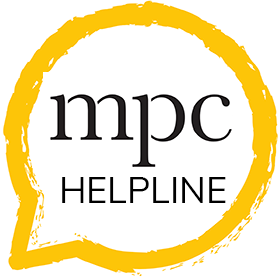
Secondary school
The challenges for pupils who stammer
- moving to secondary school, being in new classes with pupils who do not know them or know that they stammer
- needing to get to know a lot of teachers
- increasing emphasis on verbal participation
- oral exams
- any timed speaking tasks
- presentations
- interviews
- more likely to worry about being seen as ‘different’ because peer acceptance is so important at this developmental stage
- new situations and stressors to manage (exams and pressures to do well, peer relationships, subject choices, where next after college?)
- impact of reduced sleep and tiredness when revision and exams are underway
- speech and language therapy may be less available
The skills that they bring

- increased self-awareness and insight
- greater clarity about what they want
- greater ability to work towards goals
- motivation to learn from each other which often makes group therapy a great option
Things you can do to help

- slow down your own rate of talking – aim for a calm, relaxed pace
- keep natural eye contact and show that you are listening
- listen to what they are saying not how fluent they are
- give the pupil opportunities to speak and time to finish what they are saying
- let them know that you value their ideas and appreciate it when they join in
- praise them about general (non-speaking) things to build their confidence
- make your classroom a place where it is easier to speak by reducing time pressures to speak or respond, (i.e. encouraging all of the class to take their time to think of what they want to say before putting their hands up), nurturing a culture of kindness, respect, and inclusion and encouraging listening and turn-taking
- respond to any teasing or bullying, or other negative reactions to stammering, promptly and sensitively
- be flexible where you can with oral tasks or exams while encouraging the pupils ability to engage in these tasks. Can additional time be requested? Does it have to be in front of a large group? Can there be a relaxed approach by examining staff? Is a letter from a speech and language therapist needed for exam boards?
Try not to:
- say the word for them or finish their sentence
- move on to someone else in the class before the young person has finished
- assume that they will not want to participate
- tell them to slow down (it is monumentally hard for anyone to adjust their rate of speech)
- tell them to take a deep breath (taking deep breaths increases tension and struggle)
- give them any other advice about what to do or not to do when they stammer
- ask them a lot of questions at once
- put them on the spot with questions
- speak quickly yourself or in other ways put them under time pressure to respond.
Should I mention stammering?
This depends on whether a young person is aware that they stammer, whether they notice it happening when they are speaking, whether they are bothered about it and whether it is something they want to talk about.
Most secondary pupils will be aware of stammering. Some may not be particularly bothered about it or, if they are bothered about it, may not be ready to talk about it with other people.
If a young person seems to be aware of their stammer (they clearly struggle physically, give up on what they are saying or refer to it themselves), and they have said that they would like you to acknowledge moments of stammering when it happens then this can be a help. For example you might gently say ” It’s ok I’ve got time”. Only do this if you are on a 1:1 with the young person and do not do it every time they stammer.
Young people may or may not like the idea of having a chat with you about their stammer, although we often encourage this as part of therapy. If a young person wants to talk about their stammer with you then having a private chat with them and showing interest in anything that they find challenging at school and and ways to manage these can help a lot. There may be some practical things that you can do that will make day-to-day life at school easier.
Can I make a referral?
If the pupil would like to get help with their stammer you can:
- refer them to the local Speech and Language Therapist if there is one attached to your school
- refer them to the MPC assessment clinic if there is no local Speech and Language therapist
- find out how to refer to the MPC assessment clinic using the form below:
Can I talk to someone to get advice?

Contact the pupil’s speech and language therapist OR call the MPC helpline on 020 3316 8100.

Sometimes you just need someone to talk to


Sometimes you just need someone to talk to
Our Helpline, 020 3316 8100, is open during office hours (9am-5pm) and voicemail messages can be left when the office is closed.
“The MPC ACT course has had an immediate impact on my practice as an SLT working with young people with a stammer. All the practical activities meant that I was able to implement elements of this approach literally the next day with empowering results for my teenage clients. Its emphasis on acceptance makes it an important resource for all therapists and essential for those working with people who stammer.”
Become a Friend
Receive emails with news and information about the Centre's work, events, and fundraising.
Sign up